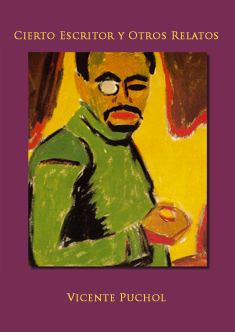



A Certain Author and Other Stories
Synopsis: A Certain Author and Other Stories
The six short stories in this book are independent from one another and are of varying lengths; the first (“The Doctor Retires”) is just a page long, and the last (“A Certain Author”) is over one hundred pages long. Nevertheless, they are all linked by the same daring ethical principles.
The beauty of literature cannot exist without the reader’s ethical consent, whether he approves or disapproves of the story’s plot, provided that these are in line with the writer’s implied ethical model. Both the author and the reader must adapt to the same ethical model, I repeat, in order for literature to be beautiful.
The six short stories revolve around different life events; they are episodes in which luck and circumstance – and the author’s inspiration – align in order to create situations that the characters, each in his or her own way, will either have to resolve, or instead allow themselves to be led astray.
Here are brief summaries of each short story:
In “The Doctor Retires,” the protagonist arises from bed one morning and collides with reality. For a moment, he believes that his retirement is merely a dream, and is astonished when he discovers that it is not.
“The Pardon” chronicles the death sentence of an innocent man, Santiago Ríos, after the Spanish Civil War. The court knows that he is innocent, but due to political pressure (a court martial, it is held after the conclusion of the genocidal conflict) it condemns him to death. The military judges’ only option is to request in their sentence that the death penalty be commuted to a lesser one. However, the accusers again turn against the innocent man with another complaint in which they employ all kinds of arguments to request that the court martial overturn the judges’ clemency petition.
Ríos was the university professor with the greatest number of doctorates in Spain (four, to be precise) – one in each of the subjects taught in the city: medicine, law, philosophy and letters, and science – and had been appointed lifetime president of the university by a unanimous vote of the deans of the four schools. His accusers are five physicians, led by his beloved disciple Jacinto Delgado – a cynical and hateful man – all of them members of the victorious national movement. They are fanatics, corrupted by envy, Spanish society’s cardinal sin.
This fictionalized version of the case does not coincide exactly with the historical reality of post-Civil War Spain– the accusers’ names and certain facts have been changed in order to avoid upsetting the assassins’ relatives – but they do represent the recorded facts of one of the worst crimes of Franco’s regime.
“The Prodigious Psychologist” is a humorous short story, with its roots in the absurd. The senior partner in a textile company keeps it bogged down in the past, opposing any sort of required innovation or renewal. This is due either to the effects of dementia or to his own stupid, unruly personality. He finally abandons the company, selling his shares to the other shareholders, destroyed by his passion for the absurd.
“Triple Concierto,” the author’s favorite work in this collection, is a love story troubled by the presence of another man – the lady’s former lover, whose friendship she doesn’t want to lose. Neither does she want to hurt him or her husband. Naturally, the on-going relationship with her one-time paramour takes place in the strictest secrecy, which creates multiple conflicts for her spouse.
“A Life Torn Apart” examines an unpunished case of medical malpractice, judicial indifference, and the traumas that are unleashed in the victim’s son as a result. The carelessness demonstrated by his mother’s surgeon epitomizes a homicide caused by criminal negligence; nevertheless, the physicians implicated in the case protect one another by testifying against the plaintiff, rather than taking responsibility for their actions. The historian Tacitus’s outcry against the medical profession, which he raised in the Roman Senate, echoes down the centuries: “You have converted the most beautiful of professions into a sordid commodity.”
Finally, “A Certain Author,” the title novella of this collection, recounts an attorney’s abandonment of the practice of law. In addition to his legal career, he is also a writer; the vicissitudes of his struggle to make his way in the turbulent, hostile Spanish literary world become intolerable and, at the end, his dreams of climbing the literary Olympus, without paying the price of his fame, come to nothing.







